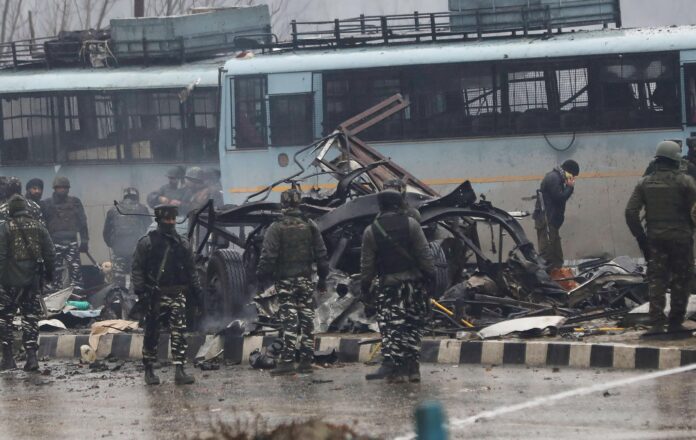Author: Kashmir Law and Justice Project
Organization/Publisher: Kashmir Scholars Consultative and Action Network (KSCAN)
Date/Place: October 3, 2020/Kashmir
Type of Literature: Informational Guide
Number of Pages: 88
Keywords: Kashmir, India, Occupation, International law, Kashmir Armed Conflict, International Humanitarian Law
Brief:
This informational guide for activists discusses international law and its relation to Indian-occupied Kashmir, a dispute that has remained on the UN’s agenda since 1948 while Kashmiris continue seeking the right to self-determination. Divided into eight sections, the guide (prepared by a network of Kashmiri diaspora lawyers) explains the nature of the Kashmir conflict and how the international community looks at it. The guide, written clearly for non-experts to understand, identifies what an occupied territory looks like and the legal means available to fight for freedom from occupation. It also traces how India has changed its terminology in defining the territory of Kashmir, from accepting it as a “disputed territory” to calling it an “integral part” and “internal matter,” though such classifications have been rejected by the UN. India claims that Kashmir joined the “Union of India” through the so-called “Instrument of Accession” purportedly signed by Maharaja Hari Singh in 1947, who was an autocrat and was facing rebellion from the indigenous people who challenged his right to sign any accord on their behalf. This guide describes that India cannot legally legitimize its sovereignty over Kashmir through its domestic law. Any legitimate hold over the disputed territory can only be achieved through UN-recognized right to Kashmiri self-determination. It also answers a significant question on whether International humanitarian law (IHL) applies to Kashmir, arguing that the laws of armed conflict applies to the occupied territory as it is an international armed conflict between two states—Pakistan and Indian–engaged head-to-head with Kashmiri indigenous armed rebels fighting Indian forces in the region. If and when the IHL is applied to Kashmir, India thus cannot deprive the population the protections of the IHL; specifically, the occupying power cannot acquire sovereignty over the occupied territory nor can it destroy or confiscate private property. The occupying power must also ensure sufficient hygiene and public health standards while ensuring access to food and medical care.
By: Riyaz Ul Khaliq, Non-Resident CIGA Research Associate




